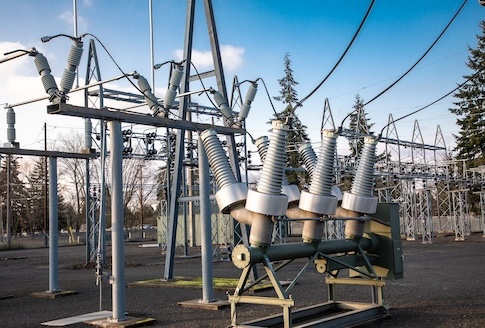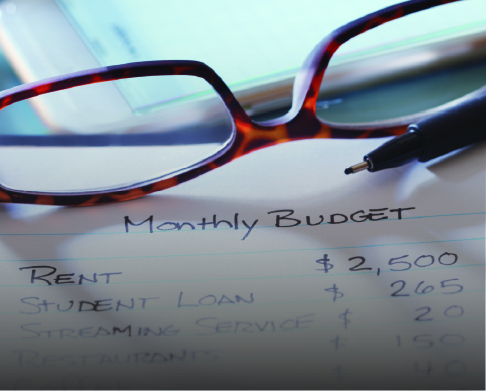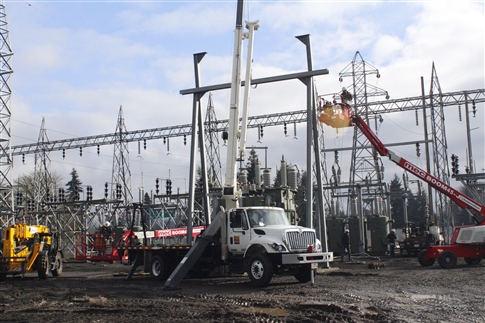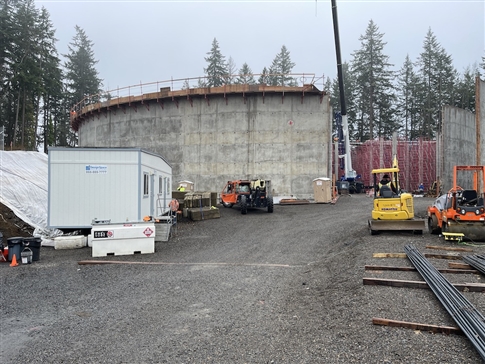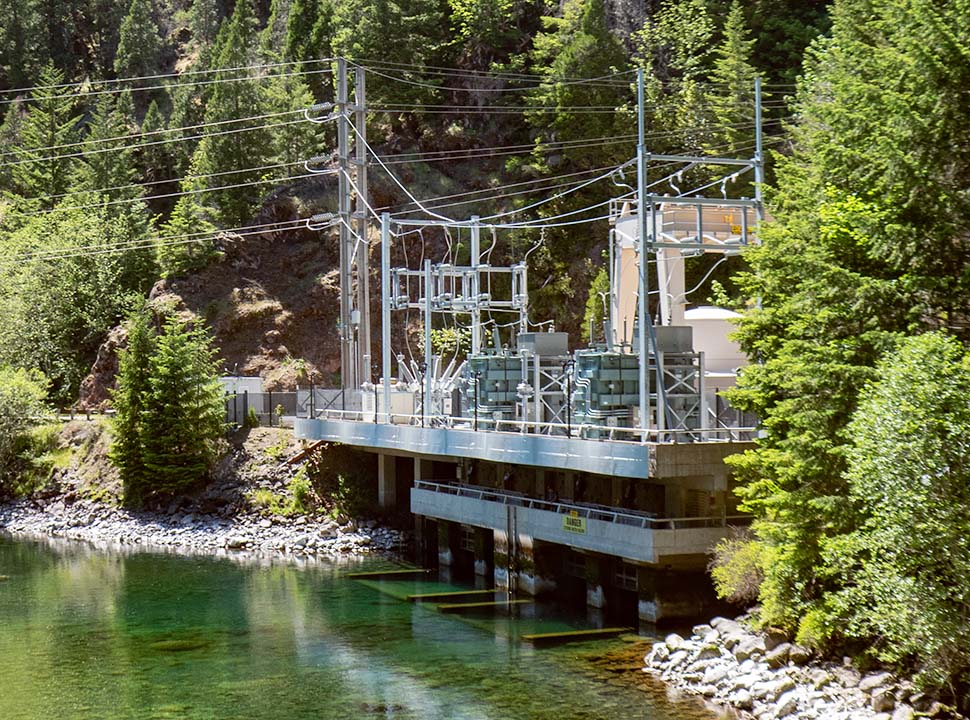EWEB Commissioners wrestled with the weighty issue of ensuring the long-term reliability of critical electricity and drinking water services while minimizing the financial burden on utility customers during their monthly meeting on July 9.
EWEB, a cost-based community-owned utility, plans to invest nearly $120 million in electric and drinking water infrastructure in 2025 and about $1 billion over the next decade to address aging infrastructure and increased risks of natural disasters. Like utilities across the region, EWEB expects to increase customer rates to fund these necessary investments, with a significant portion of the increase covering rising equipment, labor and construction costs along with purchased power costs.
Since 2016, there has been a growing gap between inflation and the rate increases that EWEB passes along to its customers. The Consumer Price Index (CPI) for water services has increased by 34%, and the electricity CPI has increased by 28%. During the same period, EWEB water rates have only gone up by 13%, and electric rates have gone up only by 9%, leaving a gap of about 20% between EWEB price increases and the rate of inflation.
Between now and December, EWEB commissioners will consider rate increases of around 15% for electricity and 9% for water across all customer rate classes effective February 2025. Increases in the cost of energy that EWEB buys from the Bonneville Power Administration (BPA) account for 5.25% of the anticipated electric rate hike. Actual rate changes will depend on a customer’s classification, such as residential or business, and will be decided in December after multiple public meetings.
EWEB rate increases have not kept pace with inflation.
EWEB is a community-owned utility, which means there are no profit margins or shareholder dividends built into the rates that customers pay for electricity and water. The utility has strategies in place to control costs and operate as efficiently as possible, such as relying heavily on low-cost hydropower, actively buying and selling electricity on the wholesale market, and using debt wisely to minimize borrowing costs. EWEB also secures state and federal funding when possible to offset the costs incurred by its local customers.
Thanks to effective cost-management strategies, EWEB reduced or maintained flat residential electric prices for six out of 10 years between 2014 and 2023. Residential water prices remained stable or were reduced four consecutive years between 2017 and 2020.
However, some costs, such as inflation and purchased power costs are outside EWEB’s control; these costs are increasing and becoming more volatile.
As of May 2024, the U.S. inflation rate stands at 3.3% over the past 12 months. The Consumer Price Index (CPI) for electricity increased by 5.9% over the same period, reflecting a rise in electricity prices that outpaces the overall inflation rate. This is indicative of broader trends in the energy and water sectors.
“Before 2021, we managed to avoid or keep rate increases low by carefully using our savings, restructuring debt, and improving our operations,” said EWEB Chief Financial Officer Deborah Hart. “But since 2020, inflation has increased significantly, and our rate increases haven't kept up.”
Setting new rates will help EWEB collect the necessary funds from customers to cover ongoing investments in infrastructure reliability, inflation on raw materials and utility equipment, and increases in purchased power costs. This includes an expected double-digit increase in power costs from the Bonneville Power Administration (BPA).
"BPA is facing the same inflationary pressures that the rest of the country is facing. Labor and materials are all getting more expensive. In response, BPA is raising the rates they charge EWEB and other publicly owned utilities in the Northwest," said EWEB Chief Energy Resources Officer Brian Booth. "As demand for electricity continues to rise, BPA needs to build out its transmission system to bring more energy from where it's generated to where customers live – an upfront cost that utilities such as EWEB will foot the bill for."
EWEB’s prices remain comparable with state, regional and national averages.
Other utilities are experiencing the same pressures as EWEB, with several implementing double-digit rate increases in recent years.
Oregon Public Broadcasting recently reported that some customers are paying nearly 50% more on their monthly energy bills than they did in 2019, noting that Portland General Electric, Pacific Power and NW Natural have raised rates by more than 20% in the last few years.
With today’s prices, the average EWEB residential customer pays about $6 per day to power their entire home and about $2 per day for water.
“EWEB staff and commissioners are acutely aware of the impacts of projected rate increases for our community, especially those who are already struggling in today’s difficult economic environment,” said EWEB’s General Manager Frank Lawson. “We are actively managing our financial situation, not just going through the motions, and we will explore all possible avenues for mitigating upcoming rate increases without compromising the utility’s financial stability or significantly impacting essential infrastructure investments.”
EWEB is just beginning the 2025 budget and rate-setting process. The final budget won’t be adopted until December after multiple public meetings during which customers are invited to provide testimony on any proposed adjustments.

